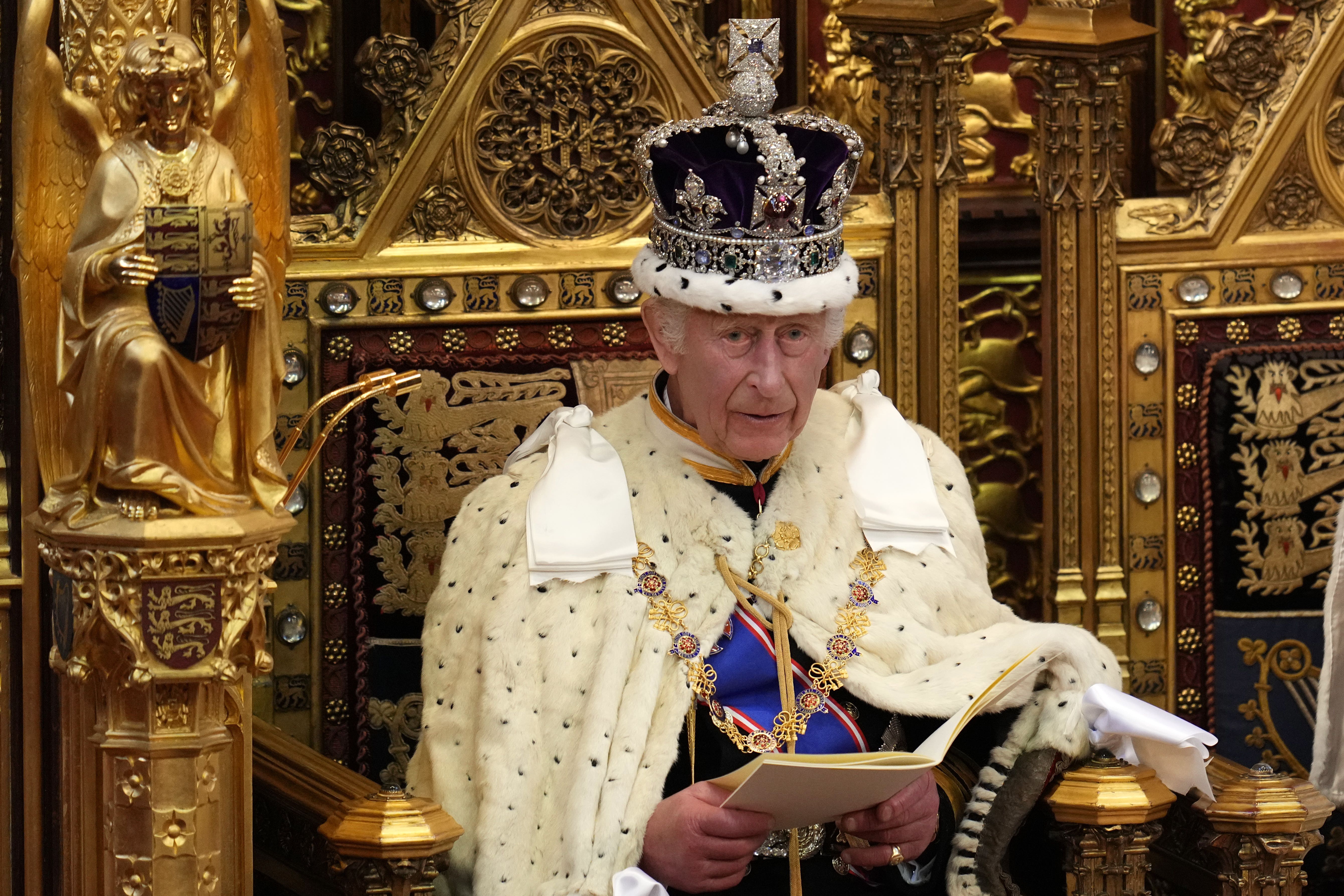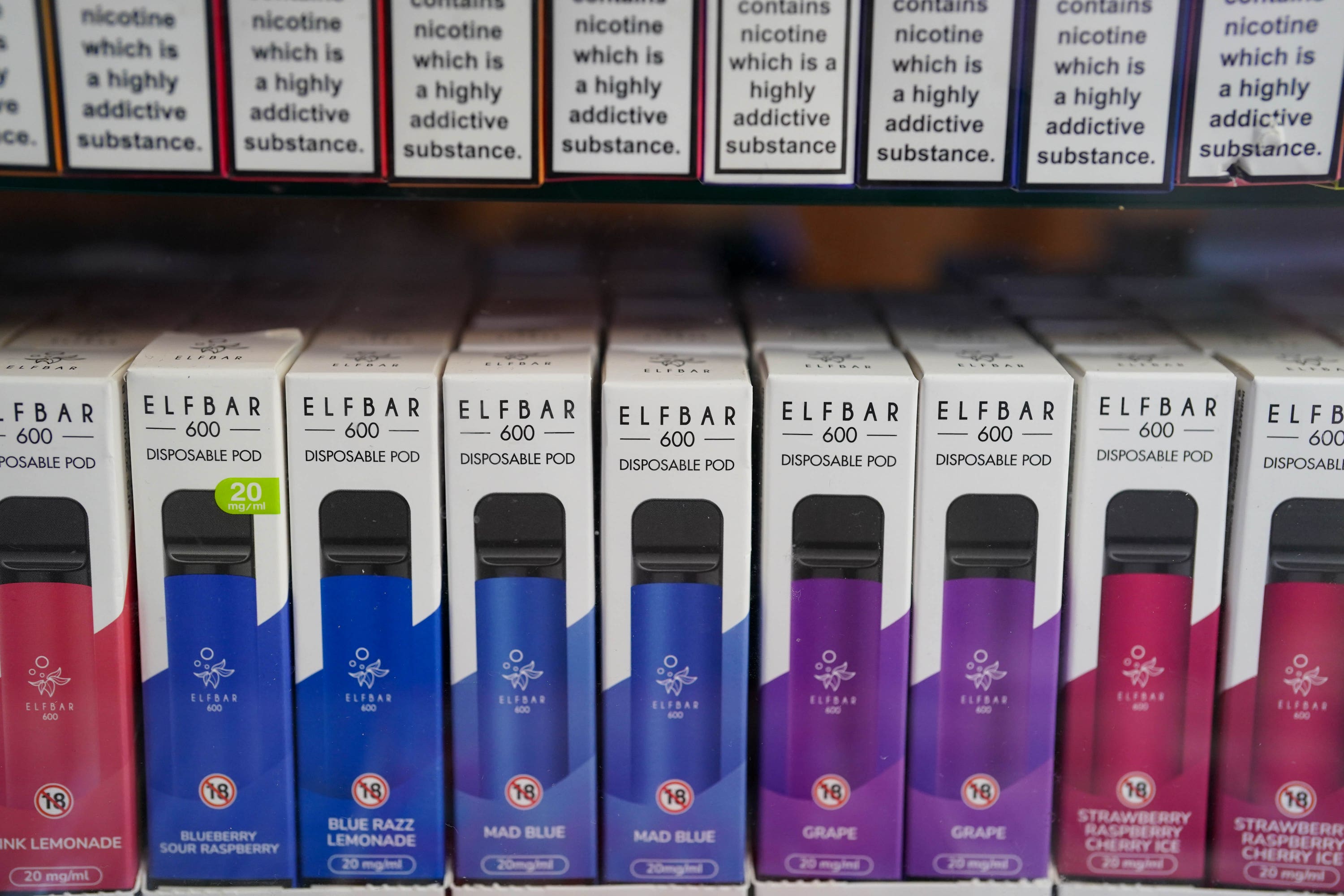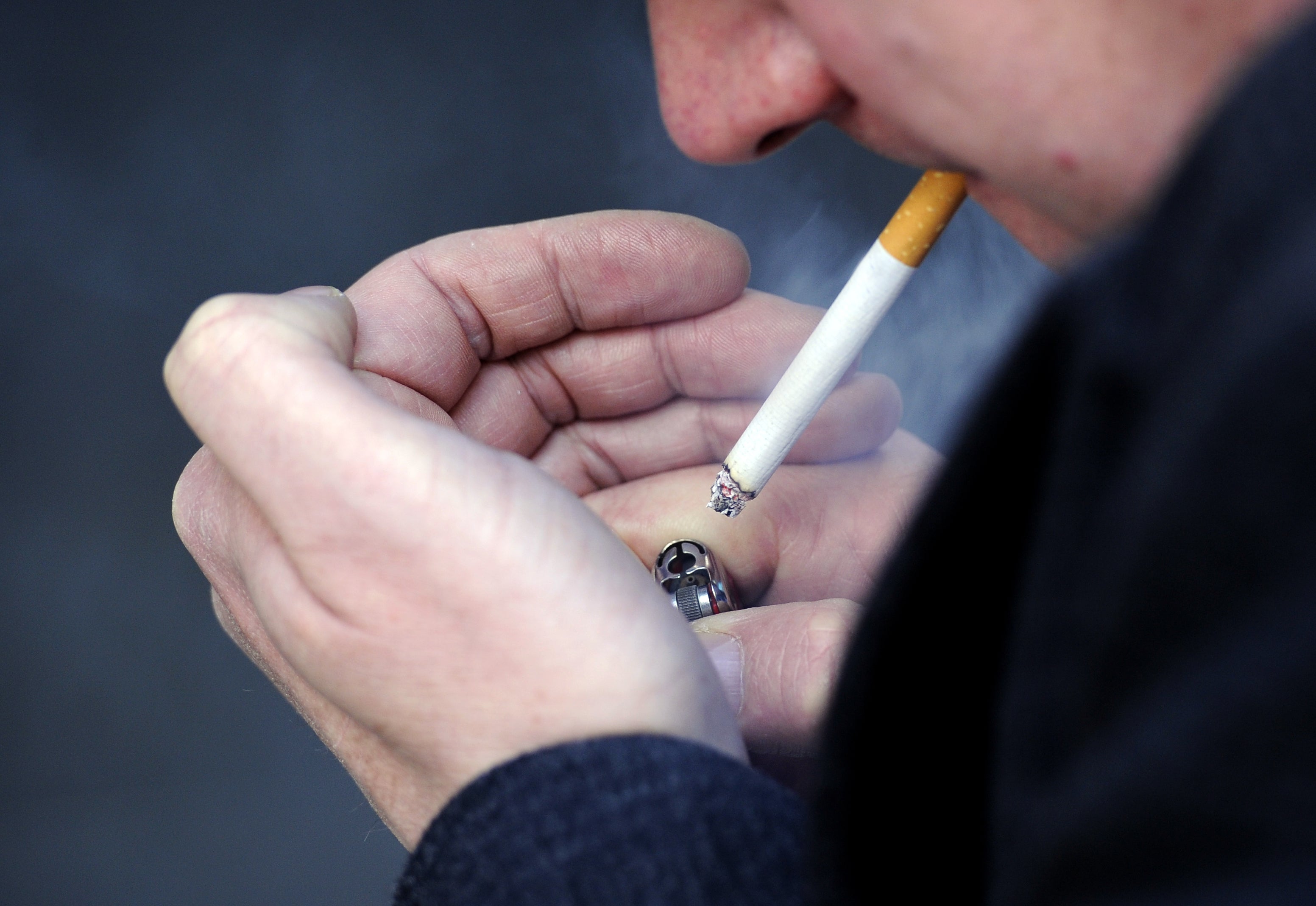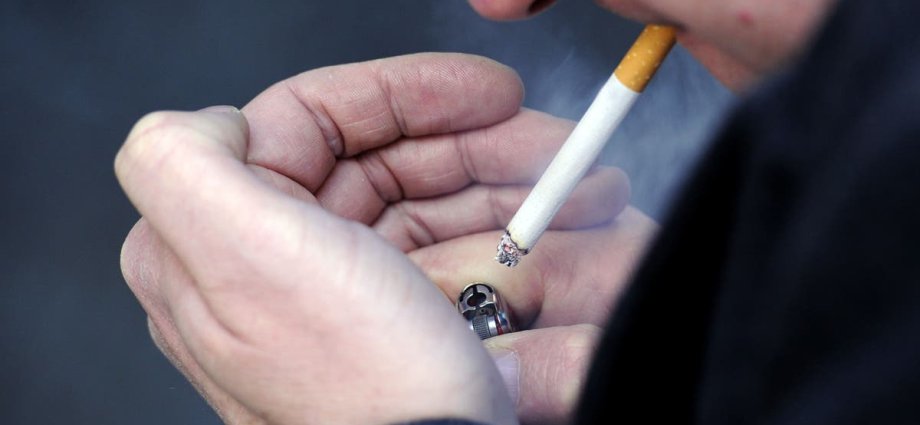The new Labour government confirmed its commitment to uphold plans for a UK smoking ban in the King’s Speech on Wednesday.
The measure, which will raise the legal smoking age by one year, every year, means anyone born on or after 1 January 2009 will never be able to purchase tobacco legally.
It will also impose limits on the sale and marketing of vapes.
While the policy was first introduced by former Tory prime minister Rishi Sunak, Sir Keir Starmer has pledged to see it through to legislation.
The bill gained cross-party support when it was first introduced by Sunak and has been dubbed the “greatest piece of public health legislation in a generation”.
MPs voted in favour of the bill by 383 votes to 67 in April. However, the bill was dropped as the general election was called before it could make its way through the legislature.
Following the King’s Speech, here we take a look at the current British smoking laws and how they could change:

What are the current smoking laws in the UK?
The legal age for buying cigarettes and other tobacco products across the UK is 18, having been raised from 16 in 2007 by the last Labour government.
In July 2007 it also became illegal to smoke in any pub, restaurant, nightclub and most workplaces and work vehicles, anywhere in the UK.
Currently, you must be 18 or older to buy and use a vape in the UK. There are no nationwide legal restrictions or laws enforced on vaping in public areas at present, and the use of them indoors is generally permitted unless an establishment has specifically imposed a ban.

How would a smoking ban work?
It is expected that the Tobacco and Vapes Bill will follow a similar format to the measures introduced in New Zealand last December, when the sale of tobacco to anyone born on or after 1 January 2009 was prohibited.
The reforms involve steadily increasing the legal smoking age, making it illegal for the next generation to buy cigarettes.
If the UK implemented the rules by 2027, anyone aged 14 and under now will never be allowed to buy a cigarette.
Last year, Mr Sunak told the Conservative Party conference that the ban would not take away the right to smoke from current smokers.
The bill also paves the way for reforms to vaping sales and their branding to reduce their appeal to children and young people.
Flavours such as bubble gum and candy floss could also face curbs as research shows children prefer them to other flavours such as menthol.
Also included are restrictions on the packaging and display of other products, such as tobacco pouches, that can draw children into smoking.
Labour’s manifesto stated: “Prevention will always be better, and cheaper, than a cure. So, we must take preventative public health measures to tackle the biggest killers and support people to live longer, healthier lives.
“That starts with smoking. Labour will ensure the next generation can never legally buy cigarettes and ensure all hospitals integrate ‘opt-out’ smoking cessation interventions into routine care.
“Labour will ban vapes from being branded and advertised to appeal to children to stop the next generation from becoming hooked on nicotine.”

Why ban smoking?
In 2019, the government set an objective for England to be smoke free by 2030, meaning only 5 per cent of the population would smoke by then.
Last year a major review led by Dr Javed Khan said that, without further action, England would miss the target by at least seven years, with the poorest areas in society not set to meet the target until 2044. It put the annual cost to society of smoking at about £17bn – £2.4bn to the NHS alone.
Dr Khan backed proposals to increase the age of sale in his report, and recommended “increasing the age of sale from 18, by one year, every year until no one can buy a tobacco product in this country”.
When he introduced the bill, Rishi Sunak said that introducing stricter measures on smoking would cut cancer deaths by a quarter and significantly reduce long-term pressure on the NHS.

Reaction to the ban
While most reaction to the ban has been positive, some smokers right’s campaigners have warned against the measure.
Smokers-rights group Freedom Organisation for the Right to Enjoy Smoking Tobacco (Forest) says the measures will not stop smokers and could instead “make smoking cool again”.
“Labour, like the previous Conservative government, is addicted to the nanny state,” a spokesperson said.
“Increasing the age of sale of cigarettes won’t stop people smoking. It will simply drive more people to the black market and could make smoking cool again.”
They added: “If you are old enough to drive a car, join the army and buy alcohol, you are old enough to buy cigarettes and other tobacco products.”











